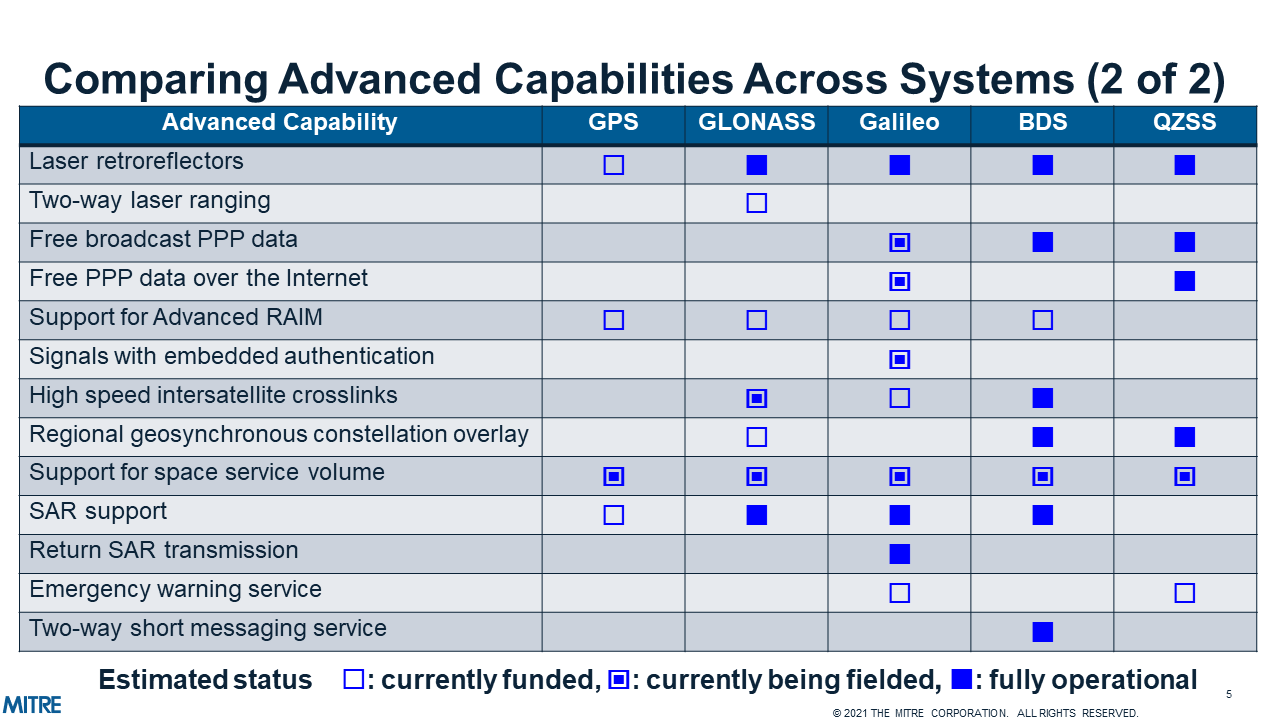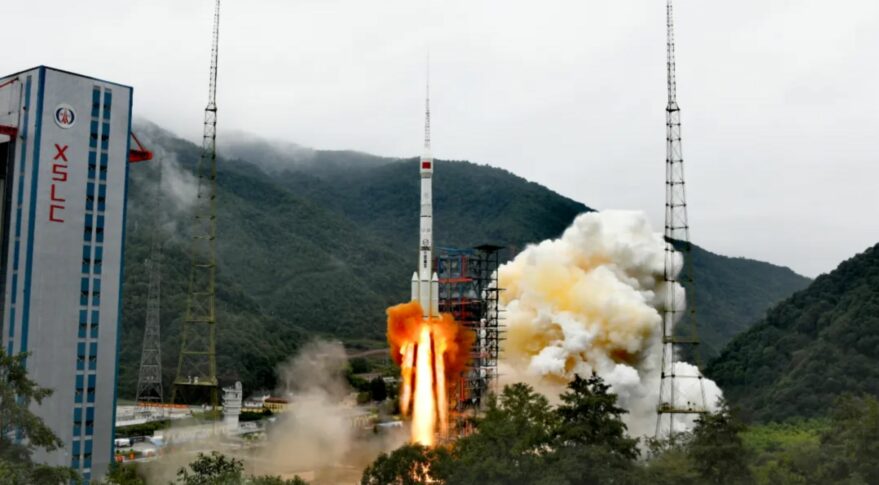Image: China Shijian 21 Launch, 24 Oct 2021: China Aerospace Science and Technology Corporation
What’s New: Another reminder that GPS is falling (has fallen) behind China’s BeiDou and this is a bad thing for the U.S.
Why It’s Important: It degrades US hard and soft power.
- Hard Power – Hundreds of monitoring stations in third world countries, subsidizing and encouraging adoption of BeiDou over GPS, possible embedded monitoring systems, and such give China real, physical power over infrastructure and systems. Right now, most receivers prioritize (trust) GPS over other satnavs. If this continues BeiDou and Galileo will be prioritized first giving China additional levers.
- Soft Power – BeiDou’s numerous advantages are being used to woo nations away from using GPS. See the Harvard paper on this.
What Else to Know:
- This chart from MITRE was developed and displayed at the PNT Advisory Board in November 2021. Things have not improved since.

- Expect to see an updated and simplified version of this chart before or at the PNT Advisory Board meeting this month.

America is losing its GPS dominance to China’s BeiDou satnav
In the 20th century, the United States vied with the Soviet Union for space supremacy. Now, in the new century, America has a different rival — China — and a key battle is already brewing in the critical area of satellite navigation (satnav). Right now, the U.S. is falling behind.
While GPS was once the undisputed king of satnav (and a key instrument of American soft power), it now has a growing list of Global Navigation Satellite Systems (GNSS) competitors – from China’s BeiDou to the European Union’s Galileo, Russia’s GLONASS and even India’s regional system, NavIC.
Without question, the most significant rival comes from China, as the country is actively seeking to displace GPS as the world’s dominant satnav system and, in so doing, to increase its own soft power influence on the nations that use it. The National Space-Based Positioning, Navigation and Timing Advisory Board (PNTAB) warned that “GPS’s capabilities are now substantially inferior to those of China’s BeiDou” and urged the U.S. to regain PNT leadership over the next decade.


